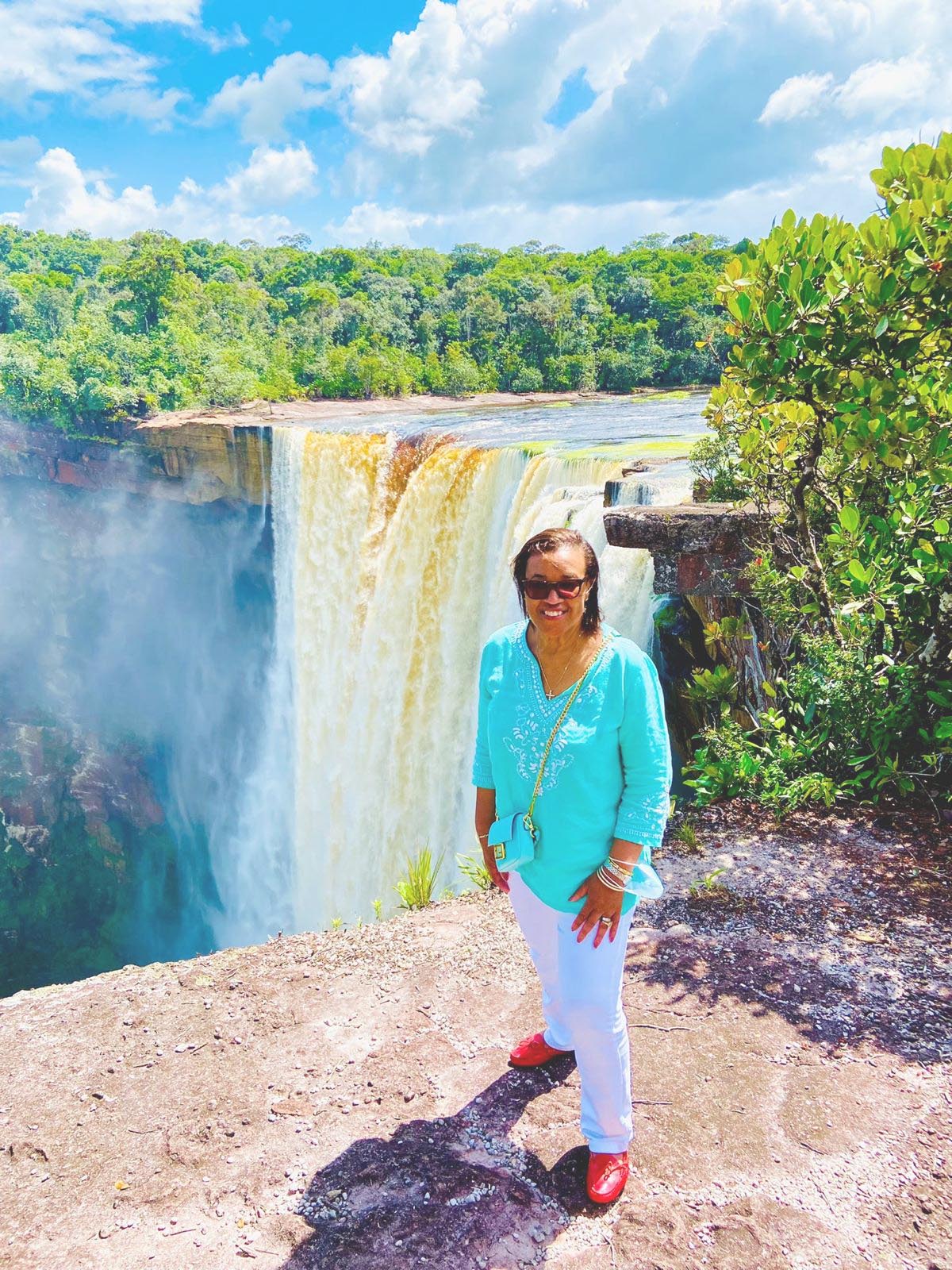With an estimated 10 billion barrels of recoverable oil, Guyana now faces the challenge of striking the right balance between environmental preservation and economic growth, according to Commonwealth Secretary-General (SG) Patricia Scotland.
“…the lucrative mining of bauxite and gold as well as the recent discovery of oil, which has propelled the country (Guyana) to become one of the fastest growing economies on the planet, still presents a common dilemma for developing nations. This is the balancing act of delivering a healthy economy, social cohesion and equality, while protecting the environment and fighting climate change fuelled by the burning of fossil fuels,” Baroness Scotland said in an op-ed published exclusively in the last Sunday Stabroek.
Her reference to social cohesion and equality will be seen as important in the context of the country’s burgeoning oil revenues.
ExxonMobil and its affiliates have made over two dozen oil discoveries offshore Guyana in the Stabroek Block. Oil production commenced in Guyana in the latter part of 2019 and the country has earned more than US$600 million from the non-renewable resource.
In the piece “A call to action on living lands” the SG expressed gratitude to the government for strong policies and the international community for support in an effort to keep Guyana’s deforestation rate below 1%. More than 80% of Guyana’s total landmass is forested.
Scotland pointed out that on her recent trip to Guyana, she had the opportunity to visit the Iwokrama Reserve for the second time and appreciated everything nature had to offer. She added that with an ever-growing population, the world’s forests are being destroyed at an alarming rate which adds to the issue of global warming as well as driving animal species into extinction.
Reflecting on her visit to the United Nations Climate Change Conference ‘COP26’ held in Glasgow, Scotland late last year, the SG explained that her interactions with the various world leaders and experts on the issue of climate change led to some intense calls for action. She added that awareness is growing among the decision-makers and the need to shift to more sustainable alternatives is becoming ever more present.
“At the same time, it was clear that almost all countries were also motivated by the drive for economic growth, job creation and enhancing their so-called standard of living. In this regard, it was a statement by Guyana’s President Irfaan Ali during a high-level event held at the Commonwealth Pavilion at COP26 that resonated with me: ‘Whatever plan we come up with at the national, regional and international levels must be comprehensive in its outlook. We cannot only look at climate change in isolation of food security, or debt security, or national prosperity. We have to find an integrated way which leads to an integrated solution.’
“It is precisely this line of thinking that has spurred an increasing number of Commonwealth member countries to support the ‘Call to Action on Living Lands’, which I announced more than a year ago,” she wrote.
Guyana’s participation at COP26 and the signing of several agreements raised serious questions about its commitment towards the preservation of the environment when it is actively exploiting crude offshore. The burning of fossil fuels is considered to be one of the major drivers of climate change.
Environmentalists have called out the Guyanese government and President Ali’s call for ending subsidies to the fossil fuel industry as hypocritical since Guyana actively provides subsidies to operators in the industry.
Explaining the initiative, Scotland said that it lays the groundwork for a Common-wealth Living Lands Charter to be proposed for adoption at the forthcoming meeting of Commonwealth Heads of Govern-ment scheduled for later this year in Kigali, Rwanda.
“The proposed Charter recognises those valuable links between different and sometimes conflicting interests of member countries. It will seek to catalyse the global political momentum to address climate action and resilience, biodiversity loss and land degradation, in a coordinated and cohesive approach. Commonwealth countries will be able to share learning and cooperate in developing and implementing solutions. When implemented successfully, this will transform the climate, biodiversity and development agendas.
“But what does that mean for ordinary Commonwealth citizens? In a word, hope. The Call for Action on Living Lands enables governments to cooperate and pave the way to learn about and access more sustainable, inclusive, innovative and efficient ways of growing food, making a living off the land and adapting to climate change. Focus areas to be explored within the Charter include climate-resilient agriculture, soil and water conservation and management, sustainable green cover and biodiversity, and the active engagement of indigenous people,” she said.
The SG added that those topics would have already been broached with Guyanese leaders when she met with them over the past week and would be put forward to other Commonwealth leaders when she meets them.






